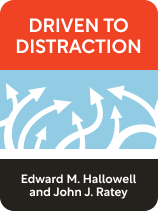

This article is an excerpt from the Shortform book guide to "Driven to Distraction" by Edward M. Hallowell and John J. Ratey. Shortform has the world's best summaries and analyses of books you should be reading.
Like this article? Sign up for a free trial here.
Does medication help ADHD? Why are some people against medication?
Certain medications can help manage ADHD, but there is a stigma behind taking medication for this condition. In Driven to Distraction, Edward M. Hallowell and John J. Ratey explain that some people believe they’ll become dependent on medication if they try it.
Let’s look at how the authors suggest handling these misconceptions.
Medication for ADHD
Does medication help ADHD? According to the authors, some people with ADHD can successfully manage their condition through a combination of education, structure, and therapy. Others may need to add a medication to their treatment regimen. Medications used to treat ADHD include stimulants, such as Ritalin, Concerta, and Adderall, and antidepressants, such as Wellbutrin and Strattera. These drugs work by increasing the brain’s levels of certain neurotransmitters: norepinephrine, dopamine (in the case of stimulants), and serotonin (in the case of antidepressants). This improves focus and can also act as a mood stabilizer. So yes, medication can help manage ADHD, but of course, it can’t cure it.
(Shortform note: adding a medication to your ADHD treatment regimen can be difficult if you have co-occurring disorders. It may be necessary to treat those other conditions before addressing ADHD if their symptoms are severe. Medications used to treat other conditions like depression or substance use may make ADHD symptoms worse, and ADHD medication may make symptoms from those other conditions worse.)
Once an ADHD diagnosis is made and you opt for medication, you’ll need to identify the specific symptoms you want to target—for instance, inattentiveness, difficulty regulating emotions, or trouble staying organized. Selecting these target symptoms will make it easier to tell if the medication is helping. The effectiveness of medication varies from person to person, and it doesn’t work for everyone, but for some, it can be life-changing.
(Shortform note: Identifying your target symptoms can be overwhelming, so it’s helpful to start by identifying which ones interfere the most with your life. You may want to ask family members or friends to help you identify these if you’re having trouble narrowing them down. Sometimes you may need to start with a behavior—such as interrupting others frequently or losing things—and then trace that back to the symptom—which could be impulsivity or distractibility.)

———End of Preview———
Like what you just read? Read the rest of the world's best book summary and analysis of Edward M. Hallowell and John J. Ratey's "Driven to Distraction" at Shortform.
Here's what you'll find in our full Driven to Distraction summary:
- What ADD is, theories on the possible causes, and potential treatments
- How our knowledge of ADD has changed since the book’s republication in 2011
- Tips for how to minimize your negative symptoms and make the most of your strengths






